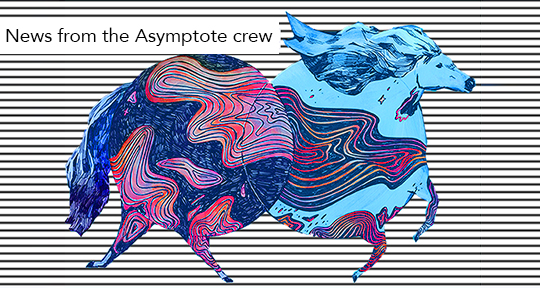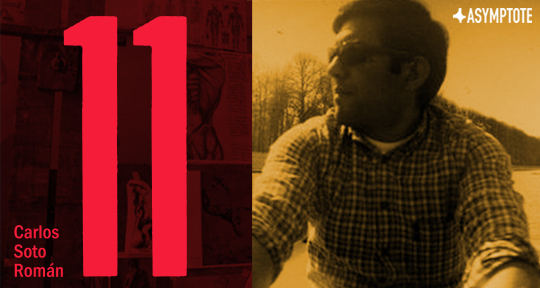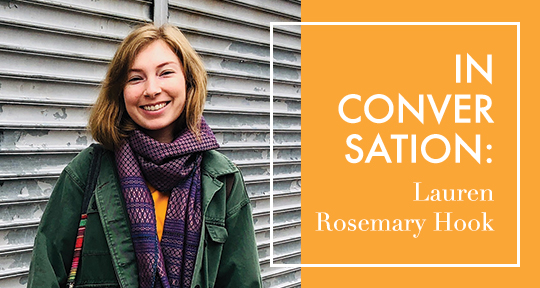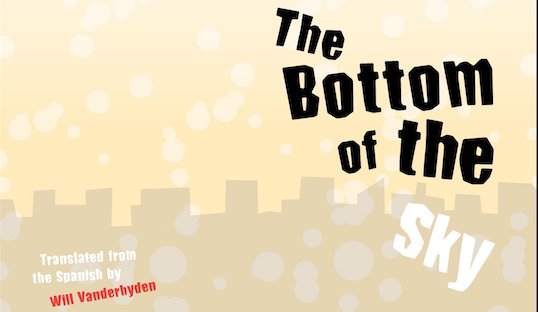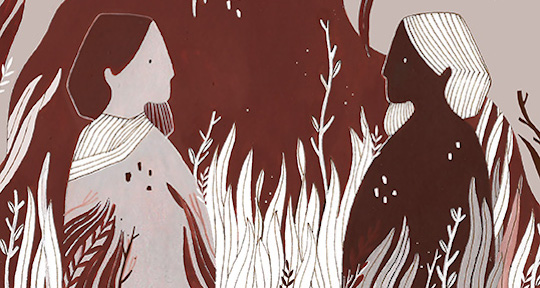This week, our team brings you literary news from around the world, including an experimental poetry reading and a festival celebrating comics! From cross-continental prize to a new exhibit at the Centre Pompidou, read on to find out more.
Alan Mendoza Sosa, Editor-at-Large, reporting from the United States
On February 7, I watched as the internationally-renowned Mexican poet and recent Asymptote contributor, Rocío Cerón presented a spellbinding performance at New York University’s KJC Center. Through sound, voice, and moving images, the performance expands on Cerón’s 2022 book Divisible corpóreo, a poetry collection that thematizes the relationship between language, poetry, and the body.
While Cerón read from the book, the screen behind her projected images featuring her bedroom and herself. These visuals were not static. Rather, they transformed in rhythmic syncopation along with Cerón’s voice. In addition, Cerón not only read the book out loud. She also brought her poems to a further experiential dimension through several resources grounded in her voice: she raised and lowered her pitch and volume, repeated words and phrases with different speeds, and sometimes elongated vowels and stuttered consonants. The effect was dreamlike. I was immediately thrown into a trance, a characteristic effect of Cerón’s awe-inspiring transmedia readings.
After the audience’s applause, Cerón was interviewed by Irma Gallo, a student in NYU’s Spanish MFA program. During this Q&A, Cerón reflected on her creative process and approach to live readings, noting that her performances often include improvisation, which makes each one of them a unique, ephemeral experience. She also talked about the feminist elements in her poetry, such as references to lineages of women writers and reflections on the mitochondrial DNA, only transmissible from mother to child. To conclude, she specified that the book Divisible corpóreo is the second installment of a trilogy that explores the connection between poetry and different senses. The other two books are Spectio (2019) and Simultáneo sucesivo (2023). Paraphrasing Cerón’s own words, these collections explore the interrelation between what we can observe and what we can hear. Each text establishes an intertextual dialogue with the other two “creating,” in Cerón’s words, “a network of signifiers and symbolic fields that touch and traverse one another.” READ MORE…


